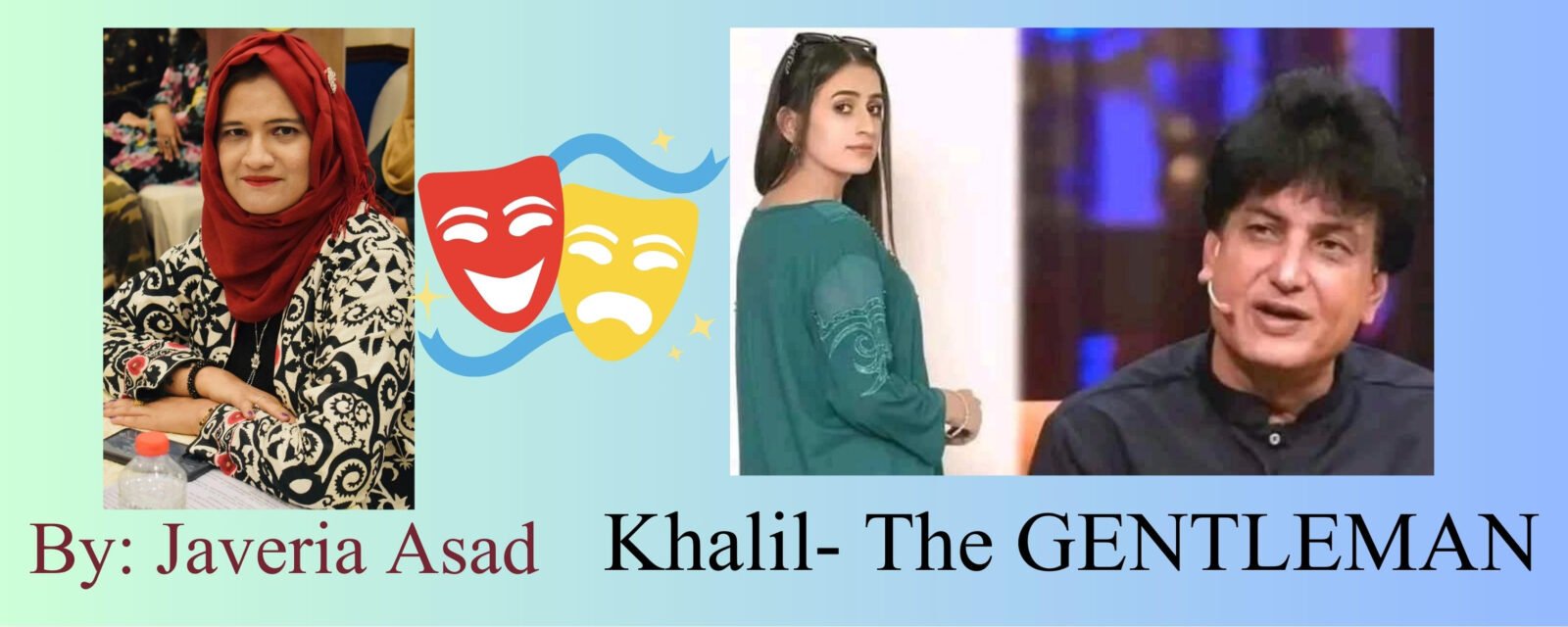Deep Dive by Javeria Asad
Khalil-ur-Rehman Qamar is a name synonymous with high TRPs and gripping drama serials. His work, including Mere Paas Tum Ho, Pyarey Afzal, and Gentleman, has cemented his reputation as a powerful storyteller in Pakistani television. However, beneath the surface of his popularity lies a pattern of storytelling that raises serious questions about gender representation in his narratives.
A Closer Look at His Scripts:
My first exposure to Khalil Sahib’s work was through Mere Paas Tum Ho. The gripping dialogues and emotionally charged scenes immediately caught my attention. Later, on a recommendation, I watched Pyarey Afzal. While both dramas were engaging, a deeper analysis revealed a recurring theme—the portrayal of women as emotionally manipulative and morally ambiguous.
In Mere Paas Tum Ho, Mehwish is cast as the villain who ruins her family, while Shehwar Ahmed walks away with minimal scrutiny. Similarly, in Pyarey Afzal, the female lead Lubna is shown toying with emotions while searching for a potential suitor, creating chaos in Afzal’s life.
The recently aired Gentleman continues this trend. The drama places the blame on Mifra for misleading Faris, despite his role as a corrupt and manipulative officer. In each of these narratives, women are conveniently scapegoated for the downfall of male characters.
The Double Standard:
Despite claiming to value women’s roles in society, Khalil Sahib’s consistent portrayal of women as deceitful or emotionally unstable undermines that claim. His public statements often come across as aggressive, even derogatory, especially when discussing gender dynamics.
This contradiction—between his spoken admiration for women and his scripted vilification—exposes a troubling double standard. His dramas rarely, if ever, tackle pressing societal issues beyond love triangles and betrayal. They also fail to offer women characters with empowering or progressive arcs.
Public Fascination vs. Critical View:
It is undeniable that Khalil-ur-Rehman Qamar has a massive following. But this popularity brings with it a critical question: Are we, as viewers, complicit in glorifying content that diminishes women?
We celebrate virality and controversy, as seen with internet sensations like Chahat Ali Khan. In the same vein, Qamar’s success thrives on a narrative that aligns with a male-dominated societal mindset, where women’s flaws are exaggerated and their voices minimized.
The Recent Controversy:
His recent scandal raises even more questions. Visiting a woman’s house late at night, only to later excuse it as a “doctor’s advice” to avoid sunlight, is hardly justifiable. Regardless of the girl’s intentions, as a prominent figure and intellectual, Qamar should have exercised better judgment. Yet, it’s likely he will again write the woman as the antagonist in his own retelling of events.
Final Thoughts:
Khalil-ur-Rehman Qamar appears to be a writer obsessed with controlling the narrative around women, often casting them in roles that are either weak, conniving, or simply vehicles for male suffering.
While he continues to deliver commercially successful dramas, he fails to use his influence to highlight meaningful social issues. If he truly possesses the intellect and influence he’s credited with, it’s time he uses his platform to inspire positive change, not propagate outdated gender stereotypes.
Until then, this “Gentleman” may continue to be exposed by the very scripts he writes.





